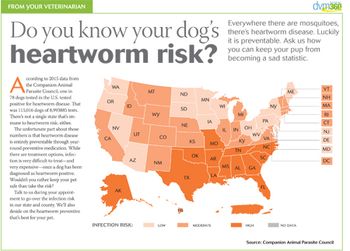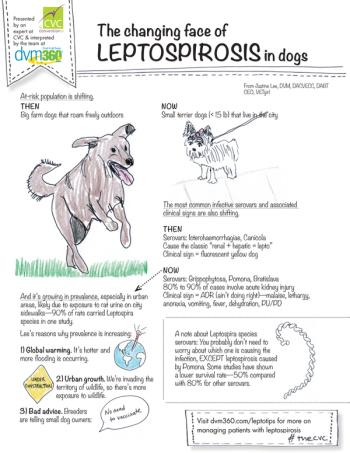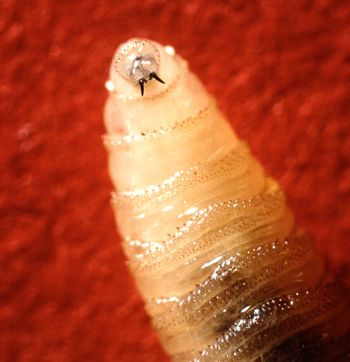
Richard Marconi, PhD, professor of microbiology and immunology at Virginia Commonwealth University Medical Center, explains why Lyme disease is so prevalent today and what breakthroughs are happening with vaccine development.

Richard Marconi, PhD, professor of microbiology and immunology at Virginia Commonwealth University Medical Center, explains why Lyme disease is so prevalent today and what breakthroughs are happening with vaccine development.

Sew up parasite prevention gaps with these tailored tips to target a range of veterinary clients.

Mosquito distribution maps are good, but they have a ways to go in terms of guiding decisions about heartworm transmission.

Hint: Most of the time, it's not on the pet. Educate veterinary clients about the role the environment plays in their flea infestation.

Repeat after us: You do not have to see the flea for the flea to cause a reaction.

Using prevalence maps from the Companion Animal Parasite Council, you can drive home the importance of year-round prevention to your clients.

Are today's veterinarians recommending leptospirosis vaccines for every canine patient? The answer is no, but, boy, are the numbers up. See if your hospital is keeping with the times ...

A microfilariae resistance test is at the heart of this protoco

Clarke Atkins, DVM, DACVIM (cardiology), says it's the right preventive led off by the right antibiotic. Do you do it every time with your canine patients?

You can't guarantee parasite preventives will work perfectly EVERY TIME. And you can't make pet owners use veterinary approved preventives and use them correctly EVERY TIME. But when a parasite outbreak happens, here's how to ask the right questions and remind everyone to educate clients EVERY TIME.

More than 300,000 people are diagnosed with Lyme disease in the United States each year, most of whom live in the northern part of the country. Researchers set out to learn why.

Client communication is an essential part of the prevention cycle.

When a flea, tick or heartworm preventive doesn't work, this veterinary practice manager doesn't point fingers. Here's why.

You know it's crucial for pet owners to curb these critters year-round. But here's a striking visual representation of why.

Heavy infection with these parasites may be life-threateningjust 60 percent of hospitalized cases survive. This new tool can help practitioners know which young horses are most at risk.

Veterinary parasitologist Richard Gerhold sets the record straight about monthly preventive medications and the possibility of pets still picking up parasites.

Most people want to know only one thing about fleas: how to kill them. Flea control is much easier than it once was, though preventing fleas is still simpler than treating an established infestation.

Each Veterinary Medicine Essentials package covers diagnostic steps, treatment plan guidance and the latest updates, plus resources to share with your entire veterinary team and your clients.

Do you know the most common dogs found to be infected these days? Get up to date on when to be suspicious in your veterinary patients.

Feline heartworm has been diagnosed in all 50 states, and it was important enough the American Association of Feline Practitioners crafted an entire campaign about it. So why don't veterinary technicians talk about preventive care as much as we could?

The worms, affecting Key deer as well as domestic pets, haven't been spotted in the U.S. since 1960.

Dog shows, dog parks and other dog get-togethers are a prime place for pathogens to have a heyday. One group of veterinary researchers has created resources to help you and your clients keep these events safe.

Human use of contaminated equipment or product is the main risk of transmission.

Consider these scripts when fielding questions from veterinary clients about the cost of flea, tick and heartworm preventives.

OK... maybe not 100%. But these five strategies can help increase client compliance with parasite prevention products.